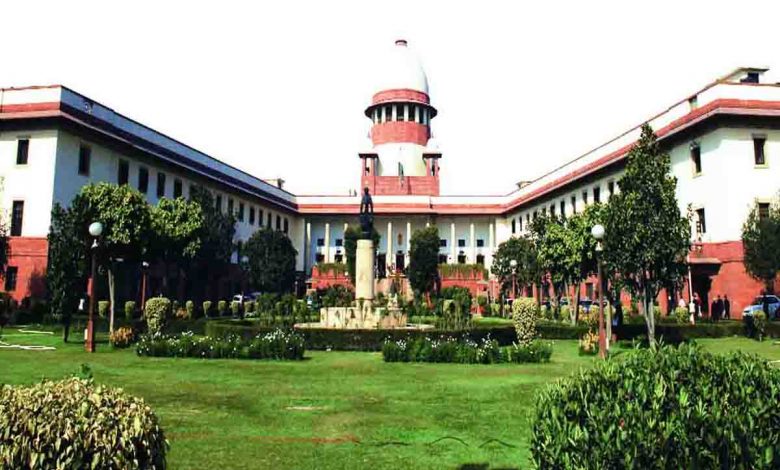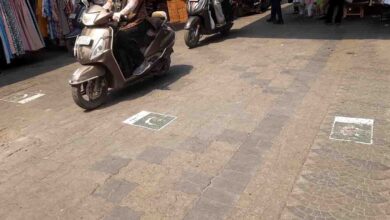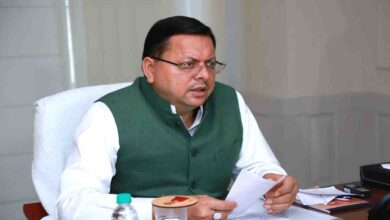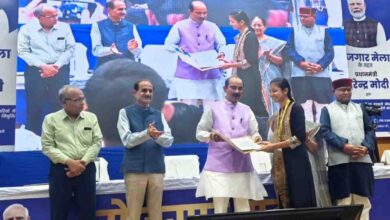SC sets up Pegasus probe panel

Thursday, 28 October 2021 | PNS | New Delhi
Ex-SC judge to supervise work of 3-member committee of cyber experts
The Supreme Court on Wednesday appointed a three-member panel of cyber experts to probe the alleged use of Israeli spyware Pegasus for surveillance of politicians, journalists, corporates and judges, saying every citizen needs protection against privacy violation and mere invocation of “national security by state” does not render the court a “mute spectator”.
The committee comprising three technical members will be supervised by its retired judge Justice RV Raveendran to be assisted by Alok Joshi, former IPS officer (1976 batch) and Sundeep Oberoi, Chairman, Sub Committee in (International Organisation of Standardisation/International Electro-Technical Commission /Joint Technical Committee).
The three technical members of the committee are: Naveen Kumar Chaudhary Prabaharan P, and Ashwin Anil Gumaste. Chaudhary, the first member of the technical panel, is a Professor (Cyber Security and Digital Forensics) and Dean, National Forensic Sciences University, Gandhinagar, Gujarat.
Prabaharan P is a Professor (School of Engineering), Amrita Vishwa Vidyapeetham, Amritapuri, Kerala, and has “two decades of experience in computer science
and security areas”.
Third member of the technical committee Gumaste is Institute Chair Associate Professor (Computer Science and Engineering), Indian Institute of Technology, Bombay, Maharashtra.
The apex court rejected the Centre’s plea to allow it to appoint an expert committee to investigate the allegations on the grounds that such a course of action would violate the settled judicial principle against bias. The top court urged its former judge Justice Raveendran to oversee the functioning of the three member panel and sought a report expeditiously from the committee.
Stating that “justice must not only be done, but also be seen to be done,” the bench headed by Chief Justice of India NV Ramana and comprising Justices Surya Kant and Hima Kohli rejected the Centre’s vehement submissions on national security saying, “…This does not mean that the State gets a free pass every time the spectre of ‘national security’ is raised. National security cannot be the bugbear that the judiciary shies away from, by virtue of its mere mentioning. Although this court should be circumspect in encroaching the domain of national security, no omnibus prohibition can be called for against judicial review.”
The top court said in this world of conflicts it is an extremely uphill task to find and select experts who are free from prejudices, are independent and competent, rather than relying upon any Government agencies or any private entity.
In the 46 page Judgment, the Bench reiterated the need of freedom of press in a democratic society. “Such a scenario might result in self-censorship. This is of particular concern when it relates to the freedom of the press, which is an important pillar of democracy. Such chilling effect on the freedom of speech is an assault on the vital public-watchdog role of the press, which may undermine the ability of the press to provide accurate and reliable information,” said the apex court highlighting freedom of press.
“We make it clear that our effort is to uphold Constitutional aspirations and rule of law, without allowing ourselves to be consumed in political rhetoric,” the bench said, adding that this court has always been conscious of not entering political thicket. “Members of civilised democratic society have reasonable expectation of privacy. Privacy is not singular concern of journalists or social activists,” the bench said.
In a democratic country governed by rule of law, indiscriminate spying on individuals cannot be allowed except with sufficient statutory safeguards, by following procedure established by law under Constitution, it said. The bench had reserved order on September 13, saying it only wanted to know whether or not the Centre used the Pegasus spyware through illegal methods to allegedly snoop on citizens.
The apex court was hearing a batch of pleas filed by Editors Guild of India, veteran journalists N Ram, Shashi Kumar, Paranjoy Guha Thakurta, seeking independent probe into the alleged Pegasus snooping matter.
Giving the details of the terms of reference, the verdict, penned by the CJI, said the panel would also enquire and investigate what steps/actions have been taken by the Centre after reports were published in 2019 about hacking of WhatsApp accounts of Indian citizens, using the Pegasus suite of spyware, whether any Pegasus suite was acquired by the Union of India, or any State Government, or any Central or State agency for use against the citizens of India.
“If any governmental agency has used the Pegasus suite of spyware on the citizens of this country, under what law, rule, guideline, protocol or lawful procedure was such deployment made? If any domestic entity/ person has used the spyware on the citizens of this country, then is such a use authorised? Any other matter or aspect which may be connected, ancillary or incidental to the above terms of reference, which the committee may deem fit and proper to investigate,” the bench asked the panel to enquire and investigate.
The top court also directed the expert panel to make recommendations regarding enactment or amendment to existing law and procedures surrounding surveillance and for securing improved right to privacy, enhancing and improving the cyber security of the nation and its assets.
The other recommendations which the expert panel has been asked to submit are to ensure prevention of invasion of citizens’ right to privacy, otherwise than in accordance with law, by State and/or non State entities through such spyware, regarding the establishment of a mechanism for citizens to raise grievances on suspicion of illegal surveillance of their devices.
“Regarding the setting up of a well equipped independent premier agency to investigate cyber security vulnerabilities, for threat assessment relating to cyber attacks and to investigate instances of cyber attacks in the country. Regarding any ad hoc arrangement that may be made by this court as an interim measure for the protection of citizen’s rights, pending filling up of lacunae by Parliament,’’ the verdict said.
The committee constituted is authorised to devise its own procedure to effectively implement and answer the terms of reference, hold such enquiry or investigation as it deems fit; and take statements of any person in connection with the enquiry and call for the records of any authority or individual, the top court said.
Justice Raveendran would be at liberty to take the assistance of any serving or retired officer(s), legal expert(s) or technical expert(s) in discharge of his functions, it said.
“We request the overseeing Judge to fix the honorarium of the members of the committee in consultation with them, which shall be paid by the Respondent Union of India immediately….The Union of India and all the State Governments, as well as agencies/authorities under them, are directed to extend full facilities, including providing support with respect to infrastructure needs, manpower, finances, or any other matter as may be required by the Committee or the overseeing former Judge to effectively and expeditiously carry out the task assigned to them by this Court,” the bench said.






